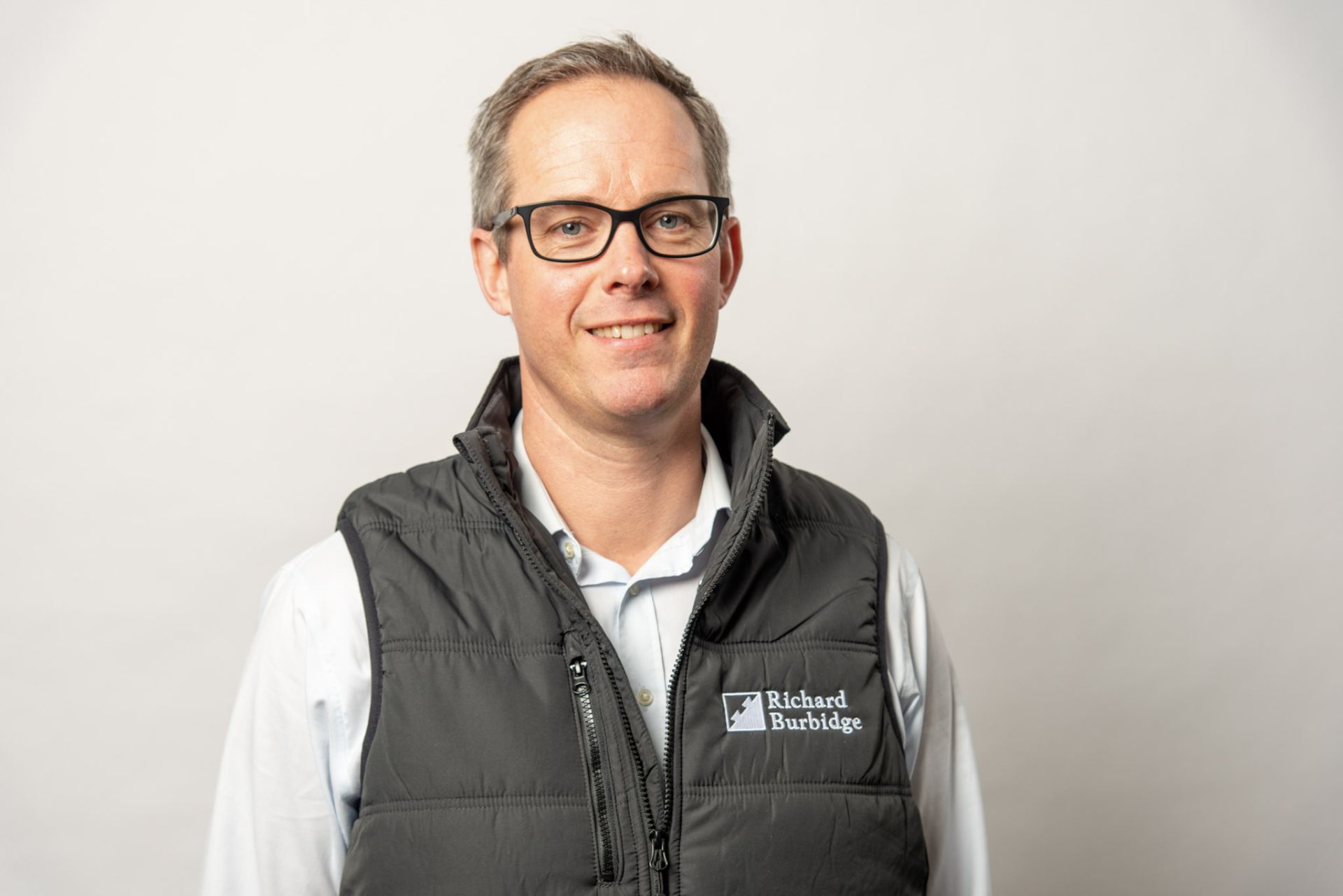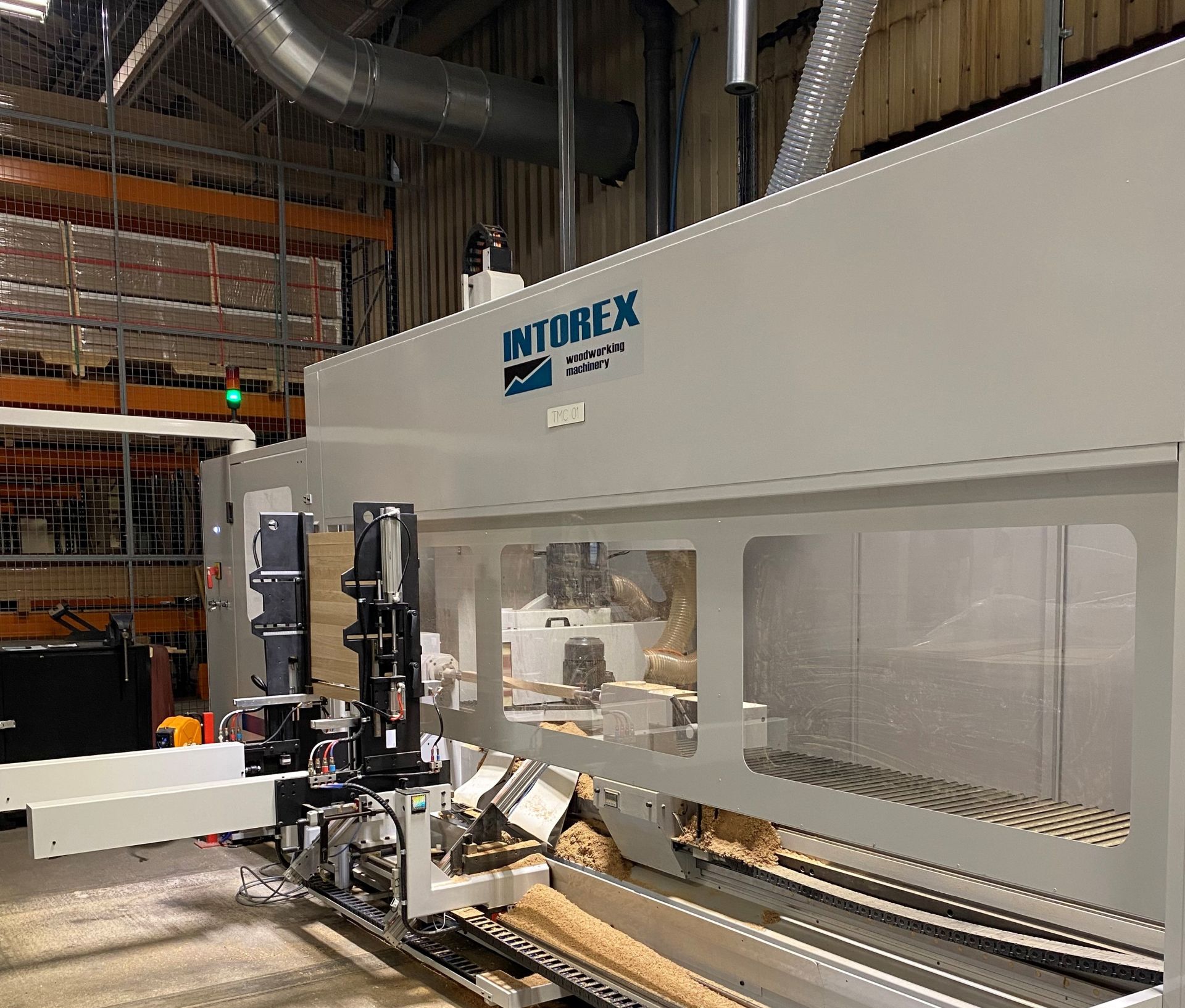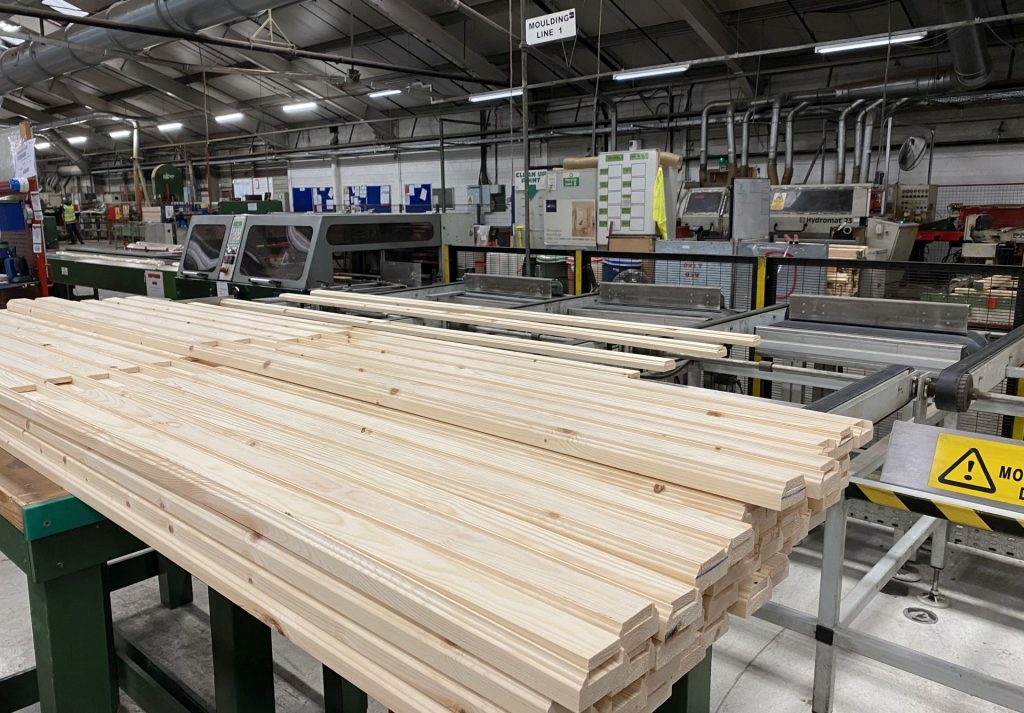Amid a challenging economic environment and evolving demands across the construction and home improvement sectors, Archwood Group continues to demonstrate the resilience of family-led, purpose-driven manufacturing. Managing Director Josh Burbidge – who represents the fifth generation of his family at the helm – speaks to The Manufacturer’s James Devonshire about how heritage, innovation and sustainability underpin the business’s long-term success.
Though the Archwood Group name was officially established in 2011, the business’s origins date back to 1867. “We rebranded to create a group structure,” Josh explained, noting that the group comprises three distinct brands: Richard Burbidge, Atkinson & Kirby and Masons Timber Products.
Key takeaways
- Archwood Group’s broad portfolio across multiple sectors – ranging from home improvement to specialist timber products – helps mitigate market volatility and supports steady growth
- Long before ESG became a trend, Archwood was championing sustainable practices. Today, its commitment includes major investments in solar energy, reduced emissions and FSC-certified sourcing – efforts that earned it a King’s Award for Sustainable Development
- The company is reshoring more production and embracing digital transformation – including a new ERP system and plans for automation – to improve efficiency and product value
- Rather than relying heavily on external hires, Archwood focuses on upskilling and promoting from within – a strategy that has earned them Investors in People Gold accreditation and fosters long staff tenure
- While committed to growth, Archwood warns that recent government policy changes – such as the higher minimum wage and the removal of family business relief – risk undermining UK manufacturing competitiveness
FAQs
- Tell us about Archwood Group, including your two main brands: Richard Burbidge and Atkinson and Kirby
- How did Archwood Group come about?
- Sustainability is obviously very high on Archwood Group’s priority list. What was the driving force behind this prominence?
- What sustainable initiatives have you implemented and what have been the benefits?
- Is Net Zero by 2050 realistically achievable?
- How have the Chancellor’s recent minimum wage and NI hikes impacted the business?
- Have you been impacted by the manufacturing skills shortage? How have you mitigated?
- What’s on the horizon for Archwood Group?
The group’s portfolio is intentionally diverse. From decorative stair parts and hardwood flooring to timber components used in sectors ranging from windows and doors to coffins, Archwood Group’s broad market coverage provides a valuable buffer against economic fluctuations. “The eclectic mix is quite useful from a business perspective,” Josh added. “If one sector slows, another often balances it out.”
Despite the spread of products and sectors, all three brands are unified by a commitment to manufacturing excellence and design innovation. “We try to constantly innovate under the brand to create strength, add value and drive profitability.”
“We’ve evolved from a contract wood processor to a business that invests in R&D and brand building,” he noted. “Whether it’s combining metal, glass and timber in staircase design or simplifying installation for DIY customers, we aim to lead the market with design-driven, accessible products.”
Proudly British, globally connected
Roughly half of Archwood’s product volume is manufactured in the UK, with efforts underway to increase that share through investment in new technologies. “We’re trying to bring in more complex manufacturing techniques and higher value products into the market by manufacturing in the UK,” Josh said.
However, international sourcing remains a crucial part of the company’s supply chain. Raw materials are primarily imported from Scandinavia, while finished products come from regions including China and Eastern Europe. This global footprint supports product diversity, but also poses challenges, particularly around sustainability goals.
“We’ve been working with our suppliers to align them with our sustainability targets,” Josh explained. “In fact, two of our major partners in China have installed solar panels after visiting our site and seeing what we’ve done here. That kind of influence is rewarding.”

Archwood Group MD, Josh Burbidge.
A legacy of sustainability leadership
Environmental responsibility is woven deeply into the fabric of the business. Archwood Group was one of the founding partners of the WWF 95 Group, which evolved into the Forest Stewardship Council (FSC). Today, that commitment is even more pronounced.
Josh outlined the company’s five core values – reputation, responsibility, growth, transformation and evolution – with sustainability sitting squarely under the responsibility pillar. “It’s not something new,” he said. “We’ve been committed to sustainable sourcing and environmental best practice for decades.”
Recent initiatives include a major investment in solar power, with over 2,600 photovoltaic cells now installed on the factory roof, generating 35–40% of the company’s electricity. Combined with process improvements and a shift to electric forklift trucks, these efforts have reduced Scope 1 and 2 emissions by twothirds. The company has also signed up to the UN’s Race to Net Zero by 2050.
Such efforts earned Archwood Group the prestigious King’s Award for Sustainable Development in 2023 – a recognition that Josh describes as “an incredibly proud moment” and a clear market differentiator.
The firm’s proactive approach also extends to packaging and materials. “We’re moving to 30% recycled plastics in all of our products and switching to cardboard wherever we can,” said Josh. “We’ve even installed recycling points throughout the business to make it easy for everyone to contribute.”
Investing in transformation and technology
Beyond sustainability, the business is also undergoing digital and operational transformation. A recent switch to a modern ERP system – Sage X3 – has enabled greater transparency across manufacturing processes and order management.
Additionally, investment in new machinery has allowed Archwood to reshore some production. Robotics are also on the horizon. “There’s still a lot of lifting and shifting in timber manufacturing,” Josh said. “We want to take the mundane tasks away from people and focus them on value-added activities.”
Josh added that Archwood is: “now analysing production data in real time and pinpointing where waste occurs. That lets us improve not just output but how we manage orders and customer expectations.”
A skills strategy rooted in development
At a time when many manufacturers are struggling with skill shortages, Archwood appears well-positioned. The company benefits from long average staff tenure – over 15 years – and an internal culture that fosters progression.
“Historically we’ve brought people in at a relatively low level and developed them,” Josh explained. The company is currently sending three employees on a lean manufacturing course and has promoted warehouse staff into supply chain roles. It’s a model based on meritocracy and multiskilling, where even cleaners may be found operating machines when needed.
This commitment was recognised with an Investors in People Gold Award. “It gives people variety, better job fulfilment and means they add more value to the business,” he added.
The business is also preparing for demographic changes. “We’ve got around 20 people nearing retirement in the next five years,” said Josh. “But the recent quality of temporary labour has been encouraging – and we’re looking at setting up graduate recruitment schemes to keep the pipeline strong.”
That said, the business remains cautious about apprenticeships, having faced mixed results in the past. “We are looking at it again,” Josh confirmed, noting the importance of ensuring foundational skills are in place.
Responding to economic and political pressures
Despite the company’s solid performance, Josh is critical of recent government policy decisions. The removal of business property relief for family businesses and successive minimum wage increases have raised concerns. “It just makes us uncompetitive,” he warned. “If you want a manufacturing base in the UK, you need an achievable entry point for lower-skilled roles.”
Archwood has so far avoided redundancies, thanks in part to its use of temporary labour. But Josh admitted that continued wage pressures may limit future hiring or investment. “We want to invest, but changes like this make it more difficult.”
“Our energy contract was also set to rise significantly after the Ukraine invasion,” he recalled. “Thanks to our early solar investment and switching providers, we avoided that increase – and that stability meant we didn’t have to pass costs onto customers.”

Roughly half of Archwood’s product volume is manufactured in the UK, with efforts underway to increase that share through investment in new technologies.
Outlook: steady progress and product innovation
Looking ahead, Josh said that Archwood’s focus remains on “steady as she goes” growth. With revenue targets on track, the business is now working to expand its product offering to meet shifting customer demands.
“We’re doing lots of new product development,” he added. “That drives profitability and keeps us attractive to our customers.”
Josh added that Archwood’s customers are changing what they want to buy. “We’re actively pushing back with fresh products to retain our relevance in the market. Innovation is how we compete.”
While challenges remain – from political uncertainty to an ageing workforce – Josh remains confident in the company’s long-term strategy. Grounded in sustainability, innovation and a people-first ethos, Archwood Group appears well-positioned to continue its evolution well into its second century.
For more articles like this, visit our Leadership channel


